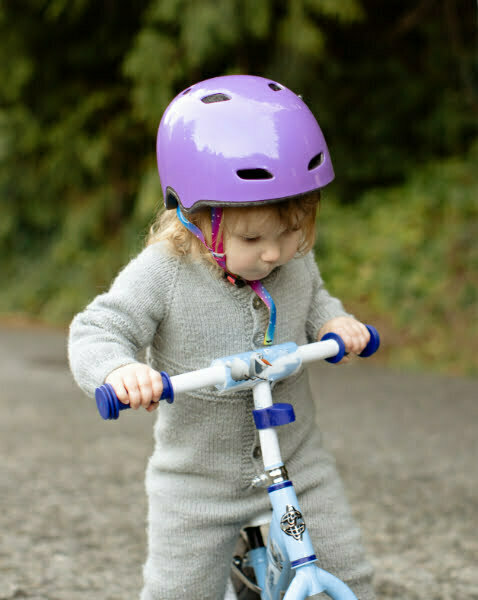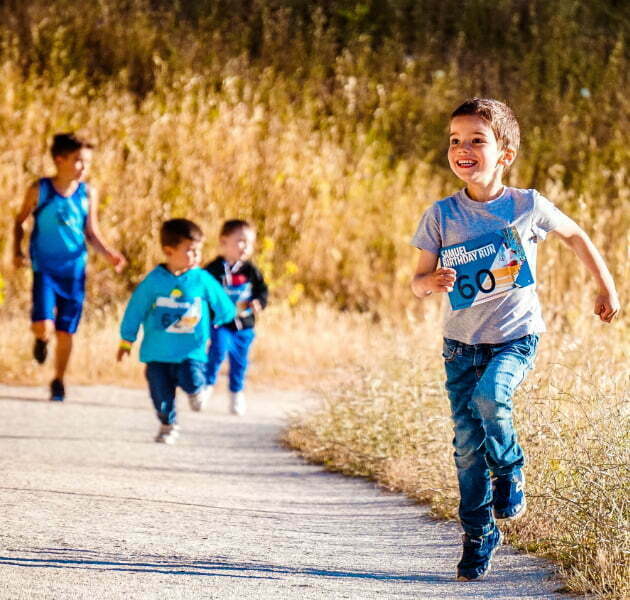It is good to prioritise children’s early physical fitness and wellness, given its vital role in their growth and development.
It is widely established through research that children who make physical activity a habit have a significantly higher chance of achieving positive health outcomes as they grow older.
While playtime is undeniably crucial for a child’s development, integrating structured exercise into their routine can offer many benefits beyond just burning off excess energy.
In this blog, we will delve into the world of toddlerhood and explore the seven amazing benefits of incorporating exercise into a toddler’s daily life. Let’s embark on a journey that unlocks the potential of play and movement as we uncover how exercise can positively impact your toddler’s growth and development.
Here are the benefits of exercise for toddlers:
1) Active children will often sleep better.
Melatonin and serotonin are critical hormones of the central nervous system that are released by the body when someone remains active. This has a noticeable impact on healthy sleeping patterns, demonstrating how vital these hormones are for physical well-being. Melatonin is often called the sleep hormone.
To promote better sleep in toddlers and young kids, it’s recommended to incorporate physical activity into daytime routines. This helps the body naturally wind down and relax come bedtime.
2) Cultivates your child’s interpersonal skills, resulting in improved confidence and a more positive self-image.
Exercising can help boost a child’s confidence. When you exercise with your child, they feel good about themselves and their abilities.
In terms of enhancing self-esteem, your child will be able to improve when they can accomplish something.
Physical activities can improve the social skills of your child as they get involved in exercises with other children of their age group.
Additionally, activities like playing sports help children to be able to work together on a team. Empowering young kids to work effectively as a unified team sets the foundation for a brighter future by equipping them with essential collaborative skills necessary for academic and professional environments.
Children can develop important values by engaging in sports, such as learning how to be gracious in defeat and what it means to be a supportive teammate or fair competitor.
3) Exercise encourages healthy habits
Exercise also encourages healthy habits like eating well and sleeping well.
When children are active, they may eat better. Active children are more likely to eat a healthy diet because their bodies burn up the calories from food.

4) Improved Physical Strength and Development
Exercise strengthens the heart and lungs.
The body’s muscles need oxygen to grow when exercising. It helps muscles get more robust by providing more oxygen. This allows the body to develop more healthy cells to fight infections and diseases.
Being physically active helps a child’s brain develop properly. Exercise helps increase blood flow to the child’s brain. This can help with memory skills, concentration and focus.
5) By promoting self-discipline in children, exercise serves as an advantage to their health and development.
Engaging in exercises promotes the development of diverse competencies. These include the capacity to sustain attention on a particular undertaking without succumbing to distractions from external sources, maintaining focus, composure and stillness for prolonged periods and enhancing learning engagement in academic settings.
Also, exercise can help your toddler learn to be disciplined, especially if they’re new to the activity. It can also teach them to follow instructions and stick with something even when bored or tired.
6) Another significant benefit of exercise for toddlers is improved coordination and balance.
Exercise improves gross motor skills such as running and jumping.
When kids are young, their gross motor skills are the large muscle movements that help them to move around and explore their environment.
As toddlers age, these skills evolve into fine motor skills, allowing them to perform tasks like colouring or writing with a pencil. Exercise helps children develop gross and fine motor skills as they age.
The more toddlers move, the better their coordination gets. When they’re older, this will improve their balance and help them perform physical tasks like riding bikes and skating.

7) Toddlers will feel happier when they are physically active.
Exercise releases endorphins and other hormones.
A fascinating aspect of the human body is its ability to produce endorphins, which are hormones responsible for promoting feelings of happiness. These remarkable chemicals also help us manage stress levels more effectively, resulting in a calmer state of mind.
Practical Tips for Toddler Exercise
Here are some practical tips to ensure a fun and safe exercise routine for your little ones:
Creative Movement Games: Engage your toddler in activities that promote creative movement, such as imitating animals or dancing to lively music. These games not only keep them active but also enhance their imagination.
Simple Obstacle Courses: Set up age-appropriate obstacle courses using soft cushions or play tunnels. These activities help improve balance, coordination, and spatial awareness.
Basic Sports Skills: Introduce basic sports skills like kicking a ball, throwing, or catching. These activities lay the groundwork for future sports involvement and enhance their motor skills.
Nature Walks: Take your toddler on nature walks where they can explore and discover the environment. This provides physical activity and also stimulates your toddler’s senses and curiosity.
Ensuring Safety During Physical Activities
1. Supervision is Key: Always supervise your toddler during physical activities to ensure their safety. Stay close by to guide and assist as needed.
2. Safe Play Spaces: Removing potential hazards creates a safe play environment. Ensure the play area is free of sharp objects and secure furniture to prevent accidents.
3. Proper Gear: Ensure your toddler wears appropriate clothing and footwear when engaging in outdoor activities. Helmets are essential for activities like biking or riding a scooter.
4. Hydration Breaks: Toddlers can get carried away with play, so be mindful of their hydration. Offer water breaks during and after physical activities to keep them well-hydrated.
By incorporating these practical tips into your toddler’s routine, you promote a healthy and active lifestyle and create enjoyable bonding moments that will leave a lasting impact on their overall well-being.
Conclusion
We hope you can now see the multiple benefits of exercise for toddlers.
Before starting your child on an exercise program, ensure they are healthy enough and have been cleared by a doctor.
Exercise is suitable for toddlers because it will help them be more active and improve their strength. Also, it’ll help with your toddler’s hand-eye coordination.
So get that ball out now and let the fun begin.
Watch the Video Summary
References
[1] Loprinzi, P. D., Lee, I. M., Andersen, R. E., Crespo, C. J., & Smit, E. (2015). Association of Concurrent Healthy Eating and Regular Physical Activity With Cardiovascular Disease Risk Factors in U.S. Youth. American journal of health promotion : AJHP, 30(1), 2–8. https://doi.org/10.4278/ajhp.140213-QUAN-71
[2] CDC (2019). Physical Activity Facts. [online] CDC. Available at: https://www.cdc.gov/healthyschools/physicalactivity/facts.htm.
Images Used
Photo by Kampus Production: https://www.pexels.com/photo/a-curly-haired-boy-kicking-the-soccer-ball-8914022
Photo by Tatiana Syrikova: https://www.pexels.com/photo/focused-little-cyclist-girl-riding-runbike-at-countryside-3932844/
Photo by RUN 4 FFWPU: https://www.pexels.com/photo/boy-running-on-pathway-2539281/





0 Comments